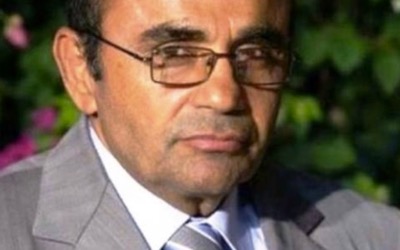
The United States is pondering the release, in July, of 13 Hezbollah hostages being held under various pretexts.
A little over a year ago, the United States adopted a complex arsenal of laws which has enabled it to obtain the extradition of, and to incarcerate, anyone who engages in the funding, albeit legal, of Hezbollah from a third country [1].
The most famous case is that of Congolese businessman Kassem Tajeddine (photo), who was arrested in Morocco, extradited to the USA, charged for "financing of terrorism" and sentenced to five years in prison. The simple discrepancy between the seriousness of the charge and the light sentence meted out attests sufficiently to the fanciful nature of the procedure. The Tajeddine family is one of the wealthiest in the Democratic Republic of the Congo. It has interests in real estate, the food industry (Atlantic Trading Co., Biscuiterie Congo Futur), timber (Trans-M), plastic (Congo Futur Plastic) and major retailing. It finances Hezbollah of its own free will, like many Shiites of Lebanese origin.
For years, Hezbollah has tried to end its dependence on Iran. Its secretary general, Hassan Nasrallah, has developed various kinds of businesses, particularly in Africa and South America, relying on the Lebanese diaspora to financially support the Lebanese Resistance through legal channels. He was therefore possibly bracing for a break with Tehran.
Contrary to popular belief, the true objective of the US campaign to hamper Hezbollah’s financial independence could be to keep it tethered to Iran until its subordination becomes untenable. In this case, the release of the 13 hostages, on procedural grounds just as absurd as those which landed them in prison, could be a response to Hassan Nasrallah’s call to turn Lebanon towards Russia.
[1] "Le Hezbollah déstabilisé", Réseau Voltaire, 28 October 2019.












Stay In Touch
Follow us on social networks
Subscribe to weekly newsletter